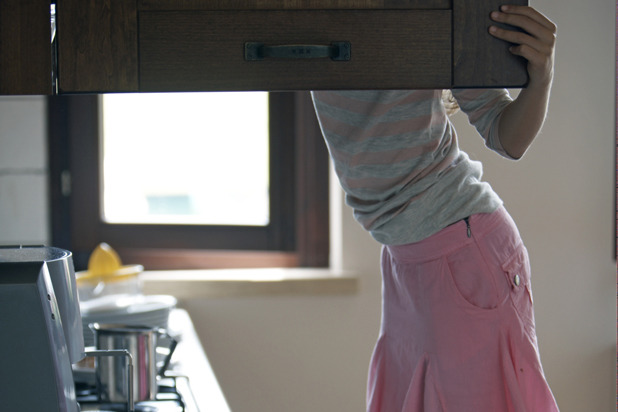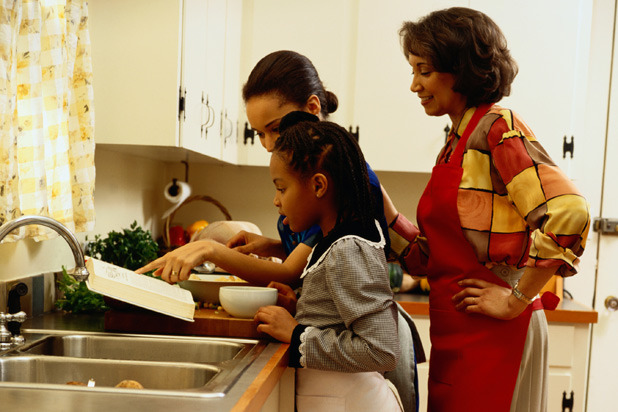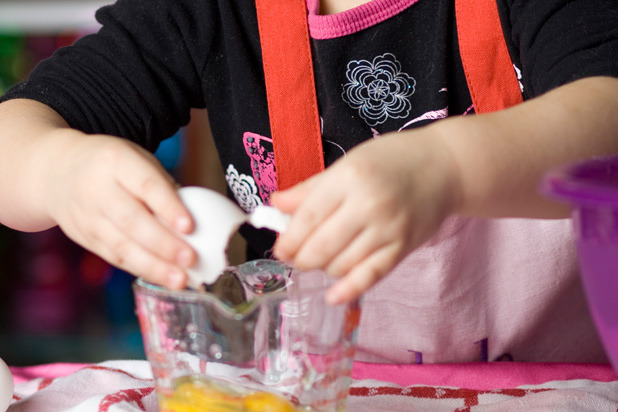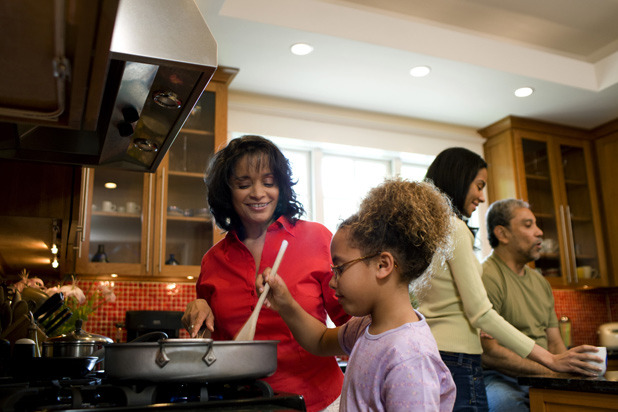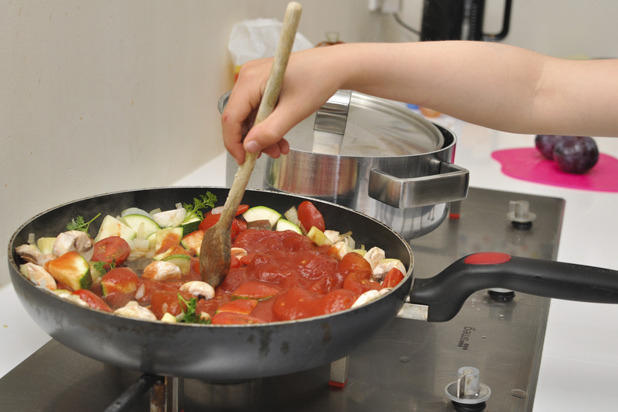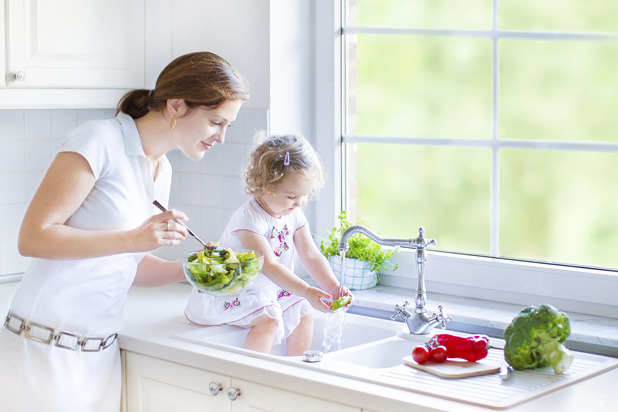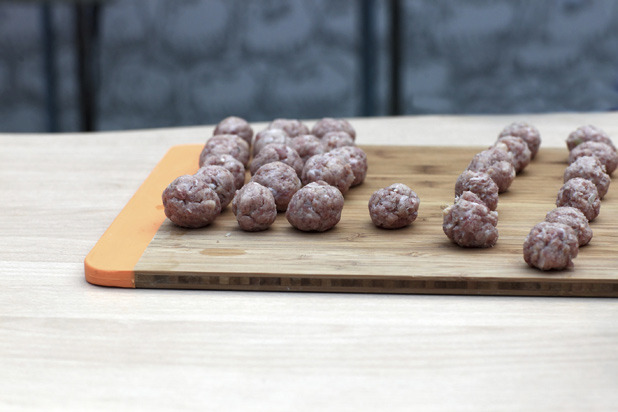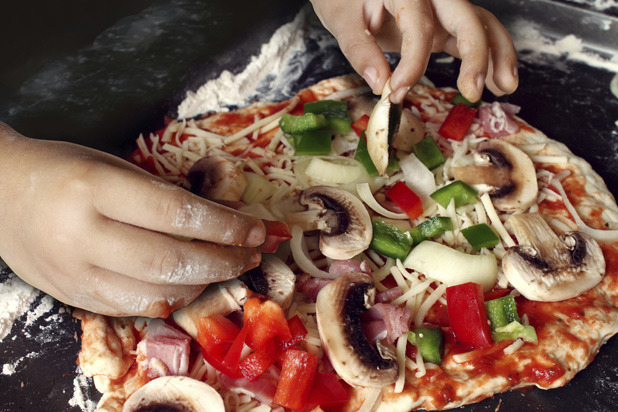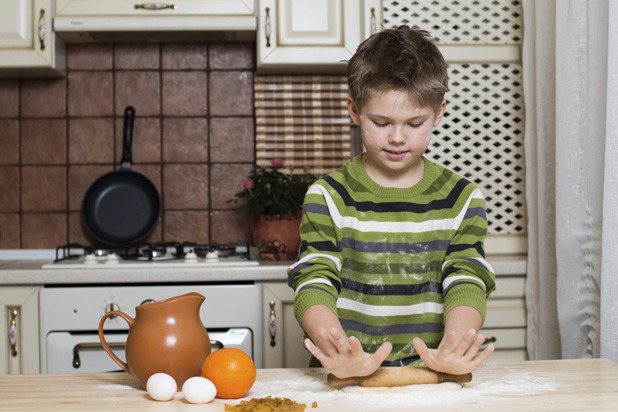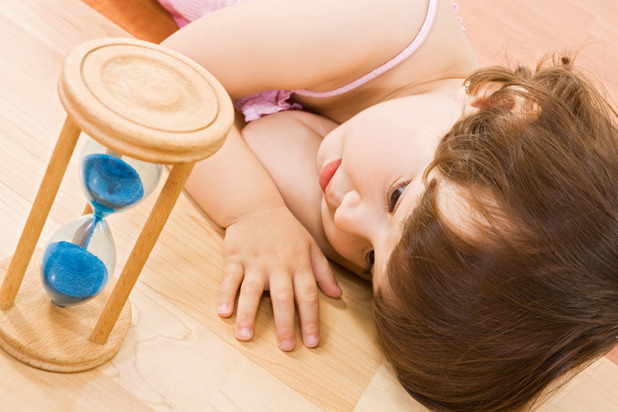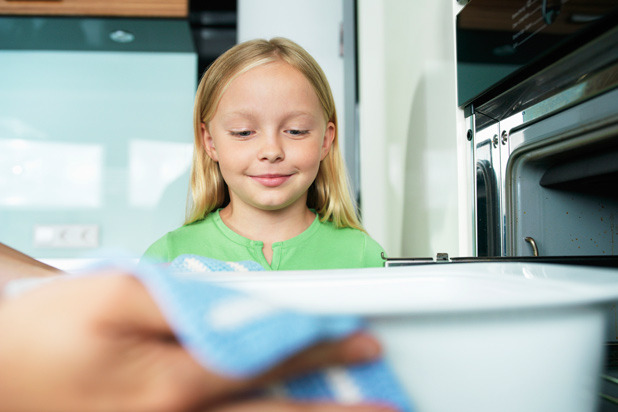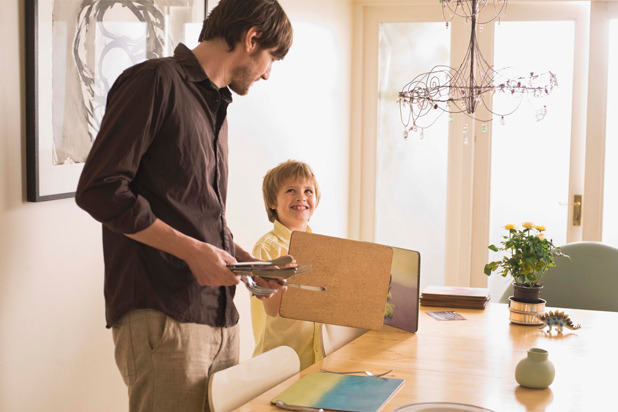12 Ways Your Kids Can Help Make Dinner (Slideshow)
The key to having a collaborative cooking session with the kids is to give them age-appropriate jobs. If you task them with things you know they can accomplish, it will build their confidence in the kitchen and will allow them to expand their "jobs" as they grow. Not only does this mean that they will get to learn more about the food they eat, it will give you and your little ones quality time together they otherwise may have spent in front of the TV!
Fetch the Food
Setting out all of the ingredients is a big help and a great learning opportunity for your kids. Ask younger kids around 3 or 4 years old to grab simple, familiar ingredients like fruits and vegetables. Older kids around 5 or so can be asked to find ingredients like milk, butter, and anything with a label. You'll have an extra pair of helpful hands and will be reinforcing early reading comprehension.
Read the Recipes
For a child learning how to read, sounding out the words on a recipe card can really help them hone their skills. Ask them to not only read out the list of ingredients, but break it down sentence by sentence for the directions. The act of physically showing them the action connected to the words they just read will help them develop a better understanding of the new vocabulary they are learning.
Crack the Eggs
This is definitely a task for an older helper. Children around 8 or older who are capable of making a judgment call on the amount of force to exert on the egg itself should be able to handle this. Make sure you have them crack the egg into a separate bowl and not the assembled mixture, as you'll want to inspect it for eggshells.
Mix it Together
This is an activity for kids of all ages, but who mixes what depends on the ingredients. Don't ask very little ones to mix together flour unless you want a nice dusting of flour all over your kitchen, or anything with raw egg in case they get noshy. But dishes like salads or mixed vegetables can be easily mixed by the younger ones, and if they sneak a few bites, all the better.
Spoon it Out
From batter to dough, give kids around 5 and up to help with this easy task. Thicker doughs are good for the smaller ones, as loose batter can sometimes be a little hard to manage.
Rinse the Vegetables
From a young age, kids can prop themselves up in front of the sink and wash vegetables for you to chop and use in dishes. Teach them the importance of washing off your vegetables while they are at it!
Roll Meatballs
Kids are not afraid to get a little messy. Older children can roll and pack the meatballs, when the younger ones can dig in and really mix the meats together. They'll love the squishy texture; again, just make sure no one nibbles any uncooked meat.
Top the Pizza
If you lay out the ingredients, kids of any age will go to town loading up a pizza with their favorite toppings. Just be sure to instruct them to evenly distribute those toppings across the pizza.
Push the Rolling Pin
You may have to guide them, but kids always get a kick out of rolling out the dough. Teach them how different doughs need to be rolled in different ways and have them get handsy with the flour. They'll love making that "mess."
Watch the Timer
If your child is old enough to tell time, put them in charge of all of the recipe timing. If a recipe called for three minutes of mixing, have them time it. If it calls for one minute of whisking, have them time it too. It feels like a big job and will really help you perfect your recipe!
Grease the Pan
Even little hands can handle this task. A pad of butter and a pan can keep them occupied and actively helping while you handle the more dangerous tasks like chopping or slicing.
Set the Table
And of course, when all is said and done, the older ones can help prep the table for dinner. Of course, they shouldn't just put out the dishware and silverware. Make sure they get their hands on serving plates and spoons so they can proudly help dish out the meal they helped make.

